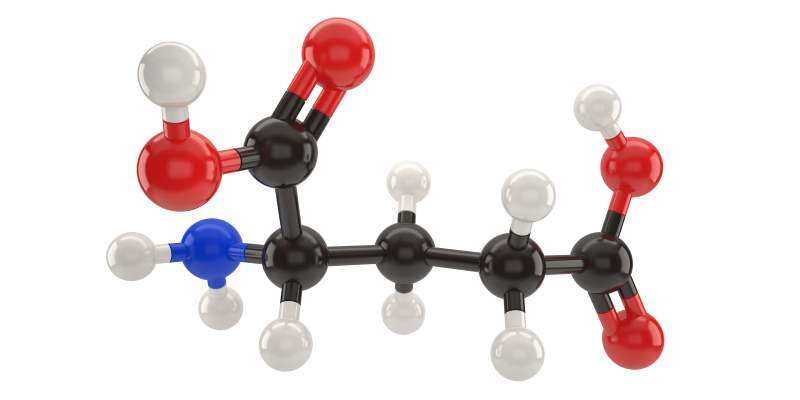Have you ever heard about peptides?
Do you consider it as an effective way to lose weight or for a glowing skin?
Let’s know more about it!
Peptides might be a new word to most of you. It can be defined as a two or more bonded amino acids. They are known as precursors to proteins, which require a minimum of 50 amino acids bond. For a more simple description, they are small proteins.
Intake of all amino acids and their production is quite necessary for all peptides, and they are needed for the body to work efficiently. Peptides are responsible for numerous functions in the body – some acts like neurotransmitters and some for hormones. They control and influence our body to diets and exercises.
How are they beneficial to humans?
 Peptides enable you to absorb more bioavailable amino acids and deliver quickly to the cells. They are high-level supplements with equal benefits and side effects, like cramping and bloating. So before choosing the best one for you, consult a physician to know which one can work better for your body.
Peptides enable you to absorb more bioavailable amino acids and deliver quickly to the cells. They are high-level supplements with equal benefits and side effects, like cramping and bloating. So before choosing the best one for you, consult a physician to know which one can work better for your body.
If you are interested in fitness and looking to build muscles then take supplements rich in peptides, like the USA made peptides online, which will produce a sufficient amount of human growth hormone.
Peptides are also known to perform a host of essential functions in the body, but peptides now have formed the basis for cellular life on Earth as mentioned in some researches and articles. They are now used in several fields that include:
Drug Research
Peptides are proven to be very useful in researching and developing some new pharmaceuticals. They can be produced naturally or synthetically to give a patient assistance in fields like – immune function and hormone production. The peptides used in drugs are easy and inexpensive to produce; synthetic peptides are known to have a positive impact on the function of natural peptides present in the body.
Essential Body Functions
Peptides are present naturally in every cell of the living being. They have numerous functions, which include the production of the enzyme that helps the body to break down foreign substances and create antibiotics for the immune system and hormones, which are responsible for controlling everything, from growth to sexual development. Peptides are essential, and without it, life wouldn’t have been possible.
Sometimes, synthetic peptides are not seen as a treatment, but as a diagnostic tool. They react to the environment around them; your doctor would give you diagnostic peptides that will change to a certain color under a microscope and reveal certain conditions related to your body.
Let’s take an example. A blue to red change reflects the presence of things like toxins or viruses, according to research conducted and published in Drug Development Research. Diagnostic peptides are also helpful in determining how peptides that occur naturally in your cells are functioning.
What foods have peptides in them?
Most of the dietary peptides remain sedentary while confined to the sequence within their respective parent proteins and are only activated when digested by the appropriate enzymes in the gastrointestinal tract or food processing or fermentation. The health-promoting properties associated with the proteins that include nutrient absorption and cardiovascular, endocrine, immune and nervous system benefits are basically attributed to the peptides encrypted into these protein molecules. Milk, eggs, and soybeans are the richest sources of peptides.
- Milk
Dairy products are the richest dietary sources of peptides, has identified in the milk protein casein alone. According to a research, peptides in casein and whey, other milk proteins were found to display an array of therapeutic activities, including antimicrobial, antithrombotic, mineral-carrying and immune-modulatory effects. Bioactive peptides are effective against hypertension, which are found in whey, ripened cheese, and fermented milk products, like yogurt.
Apart from milk, eggs are rich in dietary sources of peptides. Peptides present in egg yolk are known as egg yolk water-soluble peptide and are proved to have a protective effect on bone metabolism, leading the researchers to deem egg yolk water-soluble peptide, which is an effective alternative to current osteoporosis therapies. - Grains
Grains like corn, rice, and wheat contains peptides. According to a research, it is identified that the autoimmune trigger in wheat gluten, is responsible to induce celiac disease as a peptide. Another research indicated that an effective ‘edible vaccine’ against Alzheimer’s disease may be derived from a peptide contained in rice. Over 80 different peptides are known as plant defensins, are identified with antifungal properties, including corn and rice. - Soybeans
All types of beans and seeds contain peptides. Many researchers have identified various peptides in soybeans and have associated them with specific health benefits like soybean peptide have cancer-preventing and tumor-suppressing effects, which are known as isoflavone deprived soy peptide.
Conclusion
Peptides, unlike steroids, are present naturally in our body. They are now taken as supplements for gaining mass and building a lean body. The research and study done on peptides reveal that they are effective for our body. However, if taking them as supplements,be careful about the intake to avoid any damage to our health.
